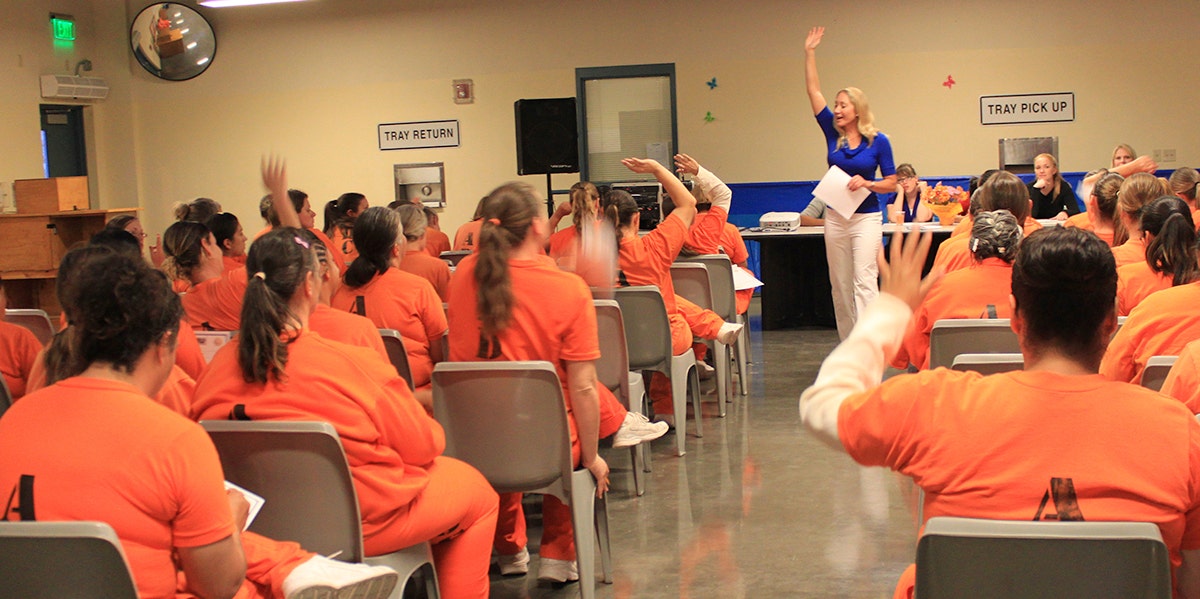New Oregon Law Offering Addicts Rehab Instead Of Jail Is A Step In The Right Direction For Prison Reform
Investing in rehabilitative programs will greatly make a difference.
 Rebekah Zemansky / Shutterstock
Rebekah Zemansky / Shutterstock Most people realize how important rehabilitation efforts are in prisons across the world — and especially America.
In places like Sweden, which have far lower incarceration and crime rates, prison is about rehabilitation. It’s about getting people in better shape for when they're eventually released back into society. In Sweden, they believe that a prison's role isn’t to further punish because the punishment is the prison sentence itself.
But not every country sees it that way — and that's why prison abolitionists exist and fight tirelessly to put an end to the horrid conditions of prisons.
But in Oregon, they're finally embarking on a long-awaited change. This week, Oregon legislation announced they've decided to decriminalize all drug offense and offer addicts rehab instead of prison, making it the first of its kind legislation in the state.
Instead of a criminal-based approach, the state will instead use a health-care based approach, offering addicts treatment instead of prison time. Those in possession of illegal drugs — including heroin, cocaine, meth and oxycodone — will be fined $100, a citation that will be dropped if said drug offender agrees to a health assessment.
The law has since gone into effect, and will continue to be implemented over the next decade.
After seeing the initiative Oregon took to lessen the blow of inmates in prisons, my only hope is that this will catch on to other states in America — especially because of the damage caused by drug criminalization, which has consistently and disproportionately imprisoned BIPOC across the country.
According to the Drug Policy Alliance, prosecutors are “twice as likely to pursue a mandatory minimum sentence for Black people as for white people charged with the same offense.”
Many argue that inmates don’t deserve a chance to be rehabilitated and are simply suffering because the justice system found them guilty of a crime. People think criminals deserve to have everything stripped from them, and should forfeit certain individual rights.
But I would argue that that type of thinking makes absolutely no sense because how are offenders ever supposed to rebuild their lives if inmates are entering a system that will only further strip them of their humanity?
The United States has high incarceration numbers: 0.7% of the population is currently in prison, which is about 1 in 150 people — which translates to almost 2.3 million people.
And if that's not enough, many people who have been incarcerated once and then released are usually arrested again for a different crime and return once again to the prison system.
The solution is never to lock people away from extensive periods of time and expect that person to suddenly become a model citizien.
The solution is rehabilitative programs, and making sure that if someone is committing a crime, they don’t commit that crime — or any others ever again.
If you throw people into a system that has no solutions to help them, those people won’t ever change. Crime rates won't ever go down unless the government invests in communities and in programs that can benefit people.
But more than just helping people while they’re in prisons, it’s also important to help offenders once they're released. Becoming a number in the justice system is detrimental to trying to assimilate back into society.
Once you've become part of the prison system, people lose their right to vote and finding jobs is hard because most employers don’t want to hire ex-inmates, among other basic human rights being stripped.
Investing into programs that can ensure ex-inmates have a chancs to better their lives and find stable jobs and housing is critical. It also greatly lowers the rate of reimprisonment.
Oregon took a critical step toward making a significant difference in the prison industry, and my hope is that more US politicians start following suit.
Nia Tipton is a writer living in Chicago. She covers pop culture, social justice issues, and trending topics. Follow her on Instagram

